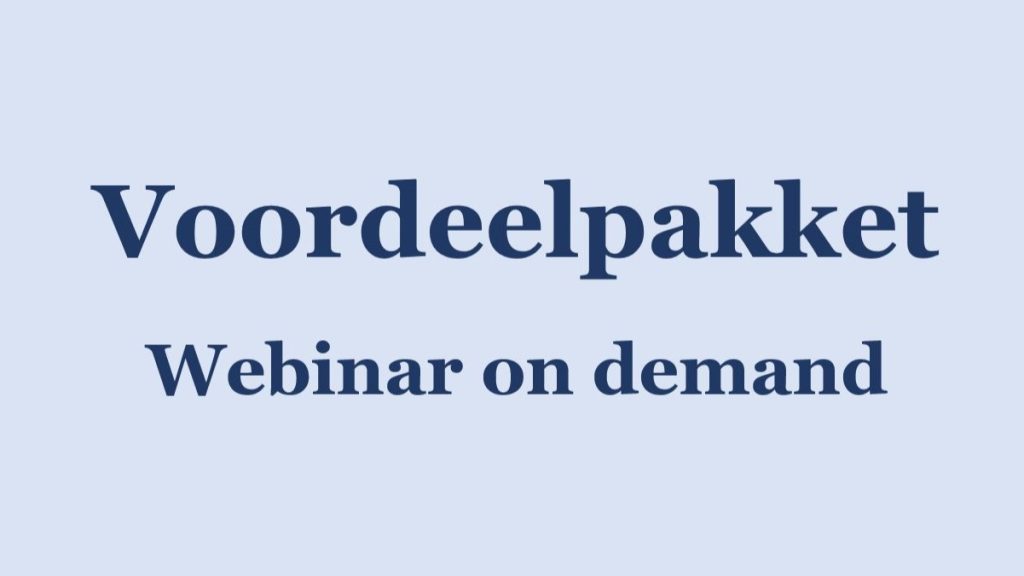Het nieuwe Boek 6 en de impact
voor de bouw- en vastgoedsector:
10 aandachtspunten
Prof. dr. Kristof Uytterhoeven (Caluwaerts Uytterhoeven)
Webinar op dinsdag 23 april 2024
Aansprakelijkheid van hulppersonen
in en buiten de contractketting.
Een analyse in het licht van Boek 6
Prof. dr. Ignace Claeys en mr. Camille Desmet (Eubelius)
Webinar op vrijdag 30 augustus 2024
Woninghuur in Vlaanderen en Brussel:
het antwoord op 25 praktijkvragen
Mr. Ulrike Beuselinck en mr. Koen De Puydt (Seeds of Law)
Webinar op dinsdag 27 augustus 2024
Het nieuwe Boek 6:
de impact op de werkvloer
Mr. Chris Persyn (Cautius)
Webinar op donderdag 4 juli 2024
Recente wetgevende ontwikkelingen
met impact op de bouwsector
Prof. dr. Kristof Uytterhoeven (Caluwaerts Uytterhoeven)
Webinar op dinsdag 27 augustus 2024
Zekerheden: een update
aan de hand van wetgeving en rechtspraak
Mr. Ivan Peeters en mr. Philip Van Steenwinkel (Hogan Lovells)
Webinar op vrijdag 8 november 2024
Possible insurance questions and disputes related to Coronavirus (Lydian)
Author: Lydian
Publication date: 02/03/2020
1. The situation with Coronavirus continues to evolve and remains unable to predict. However, based on what we have learned from historical pandemics, it seems already certain that almost all aspects of the insurance business could be impacted by the Coronavirus.
2. A global pandemic can have serious consequences for the entire insurance industry and almost any product line in the insurance industry could be concerned: Are pandemic-related business interruption losses covered under a property insurance? Are there going to be liability matters following a possible transmission of the virus? Are directors and officers going to be held responsible? Is the health care or pharmaceutical industries going to be held responsible? Are the medical costs related to pandemics covered under a health insurance? Do the travel insurance companies have to intervene in case of pandemics? Etc.
3. A pandemic is very unpredictable and can take large forms, causing problems for the insurance companies. It appears that one of the main problems with the insurance of pandemics is that actuaries are unable to calculate the risk(s) related to possible pandemics – the situation being very different each time and depending on the underlying disease(s) each time – which lead to impossible insurance of this risk by insurance companies.
4. So far, concerning the Coronavirus, most of the comments and analysis from the insurance sector concerns travel insurance and business interruption insurance:
-
- Travel cancellation insurance does generally not cover epidemics and pandemics. A cancellation insurance will in fact rarely cover causes of cancellation external to a person but will cover the policyholder in case of a health problem or in case of an event that could disrupt his/her daily life. The same goes for the travel assistance insurance. The assistance insurer will in principle only intervene in case the insured is infected by the pandemic. Additionally, many travel insurance policies generally exclude losses caused by events that were known or foreseeable, which now could lead to discussions of coverage in the event of travel to certain countries.
- In many commercial property insurance policies, business interruption coverage is insured when the policyholder demonstrates a direct physical loss or damage to the insured property by a covered cause of loss. In the event of a claim for Coronavirus-related business interruption, some insurers may dispute whether this physical loss requirement is met. Many commercial property insurance policies provide coverage for business interruption sustained when an authority prohibits the access to the policyholder’s premises. The business interruption insurer may have to provide coverage based on this specific coverage.
- Travel cancellation insurance does generally not cover epidemics and pandemics. A cancellation insurance will in fact rarely cover causes of cancellation external to a person but will cover the policyholder in case of a health problem or in case of an event that could disrupt his/her daily life. The same goes for the travel assistance insurance. The assistance insurer will in principle only intervene in case the insured is infected by the pandemic. Additionally, many travel insurance policies generally exclude losses caused by events that were known or foreseeable, which now could lead to discussions of coverage in the event of travel to certain countries.
5. We will see how the insurance sector will react to the Coronavirus but it is certain that Coronavirus-related insurance matters will emerge and the question of the insurance coverage will often be discussed.
» Bekijk alle artikels: Verbintenissen & Goederen, Verzekeringen & Aansprakelijkheid



















